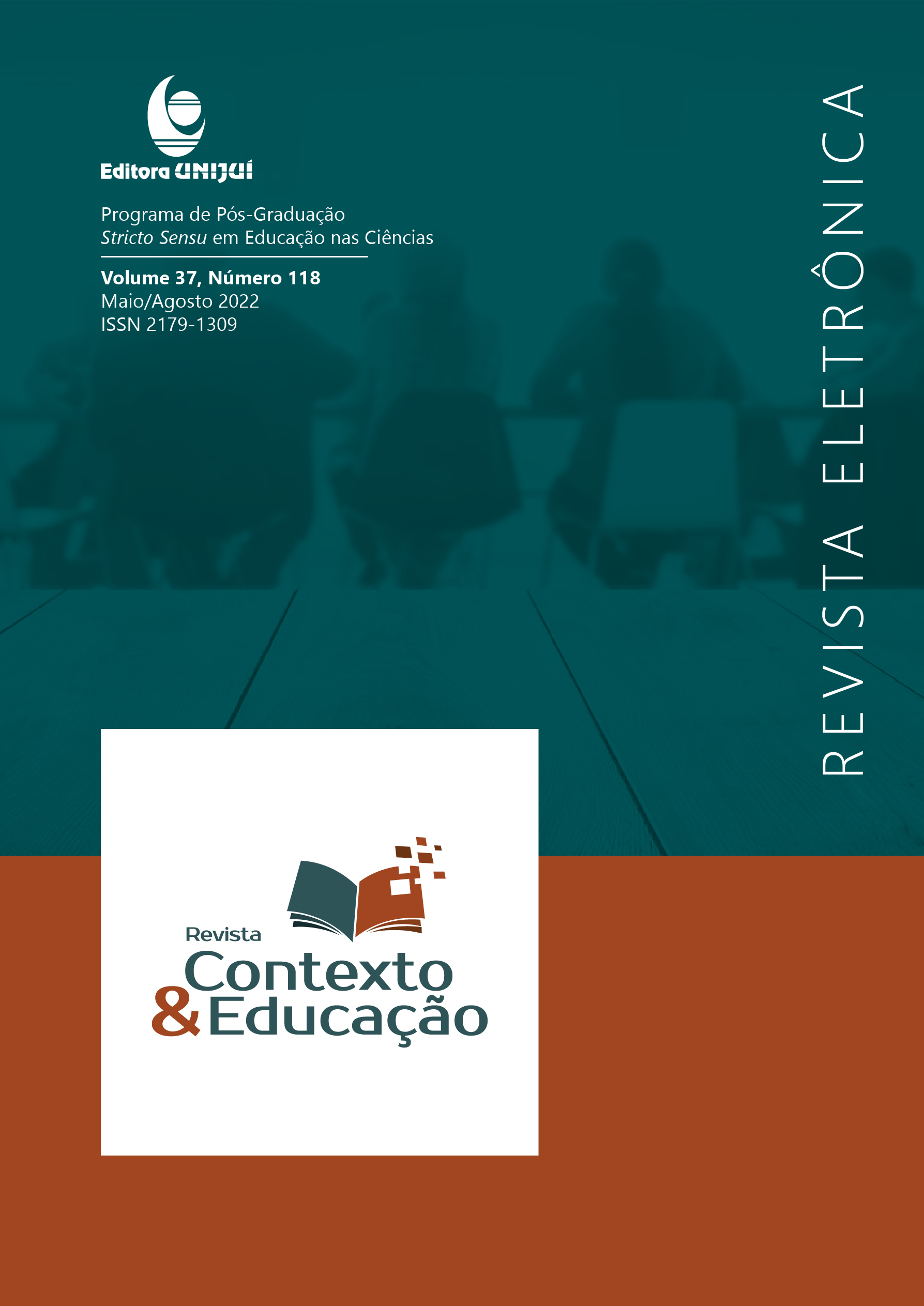Educação Ambiental como Temática Transversal: Concepções dos Coordenadores de uma Rede Pública
DOI:
https://doi.org/10.21527/2179-1309.2022.118.9336Resumo
A Educação Ambiental (EA) vista sob a ótica emancipatória e libertadora é aquela que leva em consideração aspectos éticos, estéticos, políticos, econômicos, culturais e ambientais. Nesse sentido, a EA como transversalidade está entre, atravessa e se projeta além das disciplinas do currículo, constituindo eixo transversal e deflagradora de problemas cujas reflexões estão para além dos conhecimentos contidos em uma única disciplina curricular. Dentro dessa concepção, será que os coordenadores pedagógicos que atuam nas escolas públicas municipais de uma cidade do Vale do Paraíba entendem a EA nessa perspectiva transversal? A abordagem dessa pesquisa teve como método a aplicação de um questionário estruturado elaborado em escala Likert com análise de variância de postos de Kruskal-Wallis e pós-teste de Student-Newman-Keuls aos 41 coordenadores pedagógicos da rede de ensino em questão. Para melhor compreender os resultados, os coordenadores foram divididos em três grupos, ou seja, os que atuam em escolas rurais, urbanas e centrais e urbanas e periféricas. Os resultados apontaram para uma concepção dos coordenadores para uma pseudotransversalidade, indicando que enquanto concepção há um entendimento da necessidade de uma abordagem dessa temática no campo transversal, mas que na prática cotidiana ela não ocorre, implicando uma ação educadora fragmentada, cognicista e massificada.
Downloads
Publicado
Como Citar
Edição
Seção
Licença
Copyright (c) 2021 Revista Contexto & Educação

Este trabalho está licenciado sob uma licença Creative Commons Attribution 4.0 International License.
Ao publicar na Revista Contexto & Educação, os autores concordam com os seguintes termos:
Os trabalhos seguem a licença Creative Commons Atribuição 4.0 Internacional (CC BY 4.0), que permite:
Compartilhar — copiar e redistribuir o material em qualquer meio ou formato;
Adaptar — remixar, transformar e criar a partir do material para qualquer fim, inclusive comercial.
Essas permissões são irrevogáveis, desde que respeitados os seguintes termos:
Atribuição — os autores devem ser devidamente creditados, com link para a licença e indicação de eventuais alterações realizadas.
Sem restrições adicionais — não podem ser aplicadas condições legais ou tecnológicas que restrinjam o uso permitido pela licença.
Avisos:
A licença não se aplica a elementos em domínio público ou cobertos por exceções legais.
A licença não garante todos os direitos necessários para usos específicos (ex.: direitos de imagem, privacidade ou morais).
A revista não se responsabiliza pelas opiniões expressas nos artigos, que são de exclusiva responsabilidade dos autores. O Editor, com o apoio do Comitê Editorial, reserva-se o direito de sugerir ou solicitar modificações quando necessário.
Somente serão aceitos artigos científicos originais, com resultados de pesquisas de interesse que não tenham sido publicados nem submetidos simultaneamente a outro periódico com o mesmo objetivo.
A menção a marcas comerciais ou produtos específicos destina-se apenas à identificação, sem qualquer vínculo promocional por parte dos autores ou da revista.
Contrato de Licença (para artigos publicados a partir de outubro/2025): Os autores mantém os direitos autorais sobre seu artigo, e concedem a Revista Contexto & Educação o direito de primeira publicação.


